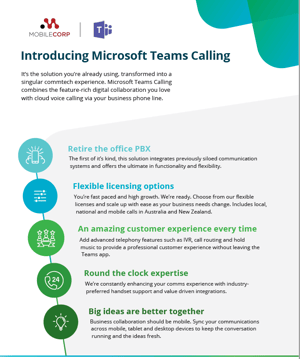UCaaS has become the communications infrastructure of choice in the post-pandemic recovery, and is now used by almost 50 percent of businesses globally.
UCaaS has become the most widely used communications infrastructure for the first time, according to research from Metrigy.
The analyst found that UCaaS is now used by 47.3 per cent of businesses globally – the highest amount since it started tracking the market in 2016.
Adoption is expected to peak in the next two years with up to 70% of companies adopting a cloud collaboration suite by 2023.
“There’s still a growth opportunity for the UCaaS market.
“UCaaS is probably going to top out at somewhere north of 70 per cent of the market in the next two years.
“I think that’s where we’ll get to. There will always be cases where companies find the value of running on-prem, or are slow to move, or need a custom hosted solution, but I think, by and large, UCaaS has won the war.”
Irwin Lazar, Analyst, Metrigy
UCaaS is the winner and not just because of the pandemic
UCaaS takes all the benefits of your communications infrastructure and places it in the cloud. The technology has been propelled into the limelight and accelerated beyond all predictions as a result of the pandemic. But the rise of UCaaS is not wholly dependent on the Covid-19 distributed workforce shift. There are many other reasons why it makes sense, especially for small enterprise and business organisations.
Reason #1 It makes sense commercially
No more using costly IT resource to manage aging on-premise legacy infrastructure. No more investing in expensive hardware, or storage space. Cloud-based services have almost no upfront costs. Companies shifting to UCaaS will see a commercial benefit immediately and will continue to see savings over time.
The freedom to scale services up and down also means that costs will scale, and, in many cases, UCaaS providers will have an option for 'pay as you go' pricing. Upgrades and patches are included in a UCaaS subscription rather than being an ongoing expense. Generally UCaaS has a lower cost of ownership than providing multiple fragmented tools.
Reason #2 It is soo easy for IT to manage
Adding or removing users. Changing access or security policies. The scalability and agility of UCaaS makes life easier for the IT team. Managing a single platform, the ability to roll things out much more quickly, and network connectivity advantages are all benefits of UCaaS. This frees up internal IT resources to focus on the core business.
Reason #3 It works for the 'anywhere workforce'
COVID-19 lockdowns and lockouts changed how we communicated full stop. And there is no going back. The value of digital collaboration is now unchallenged and we have all gotten used to having these tools in play. Much as we may dislike video calls, we can fit many more of them into our day than travelling to meet face-to-face.
One huge benefit of UCaaS is that it provides a single platform for communication and collaboration. Without UCaaS, a workforce is far more likely to be managing multiple apps, which certainly doesn’t contribute to productivity. With UCaaS the team is connected on one network and can collaborate simply through virtual meetings, instant messaging, and file sharing.
Reason #4 Innovation, Security and improvements are delivered instantly
One of the greatest benefits of UCaaS is also its most under-rated, at least during the sales process. Being in the Cloud allows easy and swift access to the latest innovations in the UC market. This could be a security protection or a new productivity tool. These past couple of years have shown the unpredictable nature of work and the value of a technology where innovation and adaptation can be applied Over-The-Air, with zero-touch required from the end user and with a far less onerous commitment from the IT team.
Zoom won the early battles, but Microsoft Teams is winning the war

Microsoft Teams Stats tell the story
- Microsoft Teams added 95 million users in 2020. It was one of the fastest growing apps of the pandemic.
- In total Microsoft Teams had 145 million users across 500,000 organisations as of April 2021.
- It is estimated that Microsoft Teams generated $6.8 billion in revenue in 2020, a 700 percent increase year-on-year.
- Teams user growth has now surpassed Zoom. Teams usage grew 894% from its base during February to June 2020, followed by Zoom at 677% and Cisco’s WebEx at 451%.
'Calling for Microsoft Teams' is next upgrade step
Microsoft offers Phone System as its Teams telephony bolt-on and while it does offer some functionality, it doesn’t provide the enterprise-quality voice capabilities that most enterprises require.
Teams Calling solutions can be customised for different business roles. Collaborative roles may include video telephony and basic call features; while call-intensive roles such as customer support and sales can have access to advanced telephony features and call queues synced across their preferred devices.
Features include
- Call queuing
- Call recording
- Call forwarding
- Skill-based call routing
- IVR
- Custom on hold music
- CRM Integration
- Call analytics and AI
About MobileCorp
MobileCorp is a Sydney-based communications technology company. We support companies by providing managed mobility and ICT services including UEM and EMM, mobile device security, expense management and managed connectivity solutions.
-1.png?width=300&name=MobileCorp%20logo%20(cotiol)-1.png)
Remote Working Michelle Lewis 12 Oct 2021
Related Posts
Popular Tags
- Mobile Devices (82)
- Mobility (81)
- Telstra (66)
- 5G (65)
- MobileCorp Managed Services (55)
- Mobile Network (38)
- Networks (34)
- Cradlepoint (32)
- Apple (29)
- MobileCorp (29)
- iPhone (25)
- Remote Working (23)
- Network (17)
- Covid-19 (16)
- Mobile Security (15)
- Wireless WAN (15)
- Cyber Security (14)
- UEM (14)
- MDM (11)
- Mobile Expense Management (10)
- Mobile Device Management (9)
- TEMs (9)
- Mobile Device Lifecycle (8)
- Cloud (7)
- Unified Comms (7)
- Unified Communications (7)
- Wandera (7)
- Android (6)
- Sustainability (6)
- Data Networks (5)
- Network Security (5)
- Samsung (5)
- Security (5)
- Digital Experience (4)
- IOT (4)
- Microsoft Intune (4)
- Blog (3)
- IT Services (3)
- Microsoft (3)
- Data (2)
- Government (2)
- Microsoft 365 & Teams (2)
- Retail (2)
- nbn (2)
- webinar (2)
- 4G (1)
- DAS (1)
- EMM (1)
- Emerging Technologies (1)
- Hosted Telephony (1)
- Managed Desktops (1)
- SD-WAN (1)
- Starlink (1)
- Telstra Services (1)
- WWAN (1)
- video (1)













